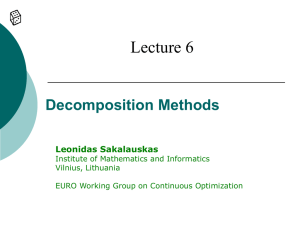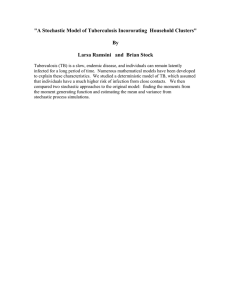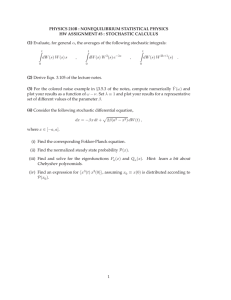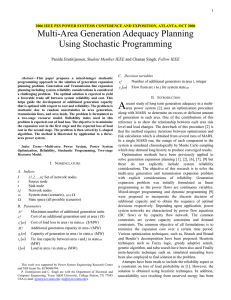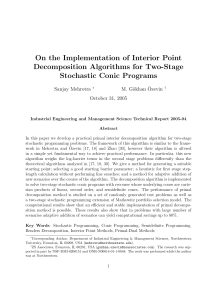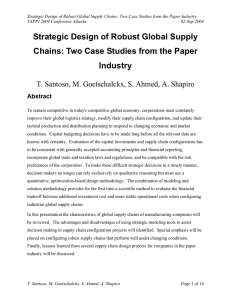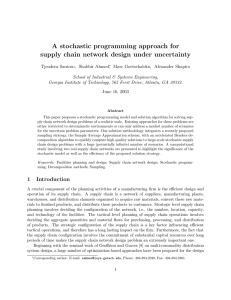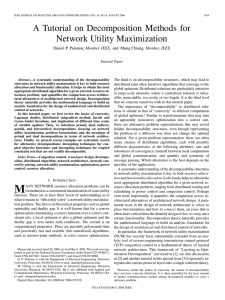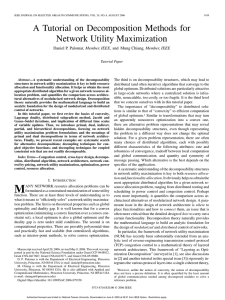A comprehensive model and efficient solution algorithm for the design... supply chains under uncertainty
advertisement
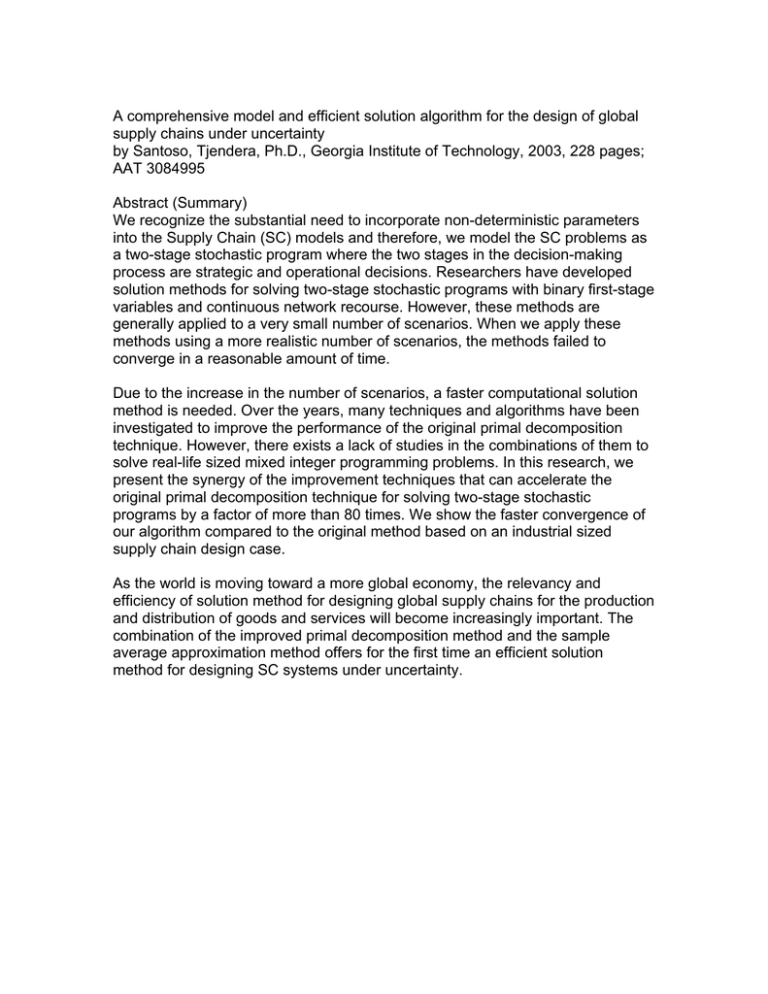
A comprehensive model and efficient solution algorithm for the design of global supply chains under uncertainty by Santoso, Tjendera, Ph.D., Georgia Institute of Technology, 2003, 228 pages; AAT 3084995 Abstract (Summary) We recognize the substantial need to incorporate non-deterministic parameters into the Supply Chain (SC) models and therefore, we model the SC problems as a two-stage stochastic program where the two stages in the decision-making process are strategic and operational decisions. Researchers have developed solution methods for solving two-stage stochastic programs with binary first-stage variables and continuous network recourse. However, these methods are generally applied to a very small number of scenarios. When we apply these methods using a more realistic number of scenarios, the methods failed to converge in a reasonable amount of time. Due to the increase in the number of scenarios, a faster computational solution method is needed. Over the years, many techniques and algorithms have been investigated to improve the performance of the original primal decomposition technique. However, there exists a lack of studies in the combinations of them to solve real-life sized mixed integer programming problems. In this research, we present the synergy of the improvement techniques that can accelerate the original primal decomposition technique for solving two-stage stochastic programs by a factor of more than 80 times. We show the faster convergence of our algorithm compared to the original method based on an industrial sized supply chain design case. As the world is moving toward a more global economy, the relevancy and efficiency of solution method for designing global supply chains for the production and distribution of goods and services will become increasingly important. The combination of the improved primal decomposition method and the sample average approximation method offers for the first time an efficient solution method for designing SC systems under uncertainty.

